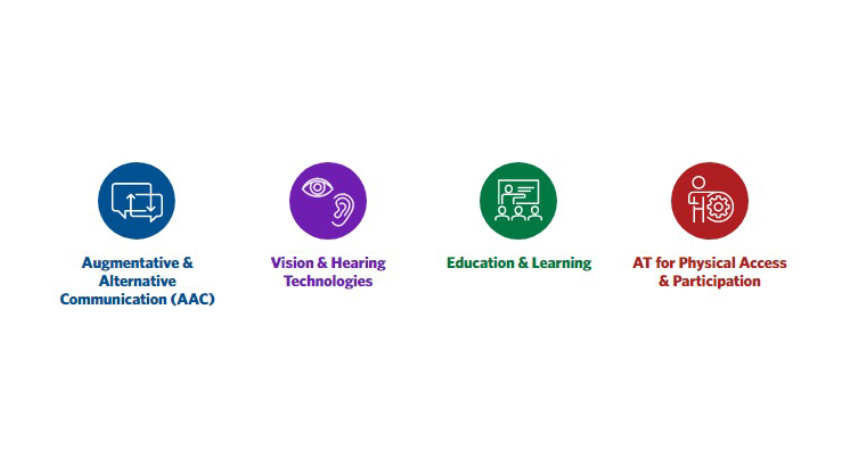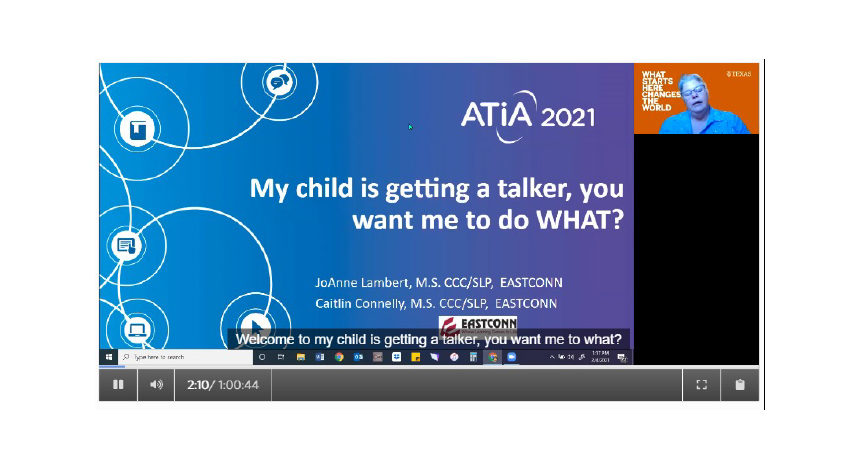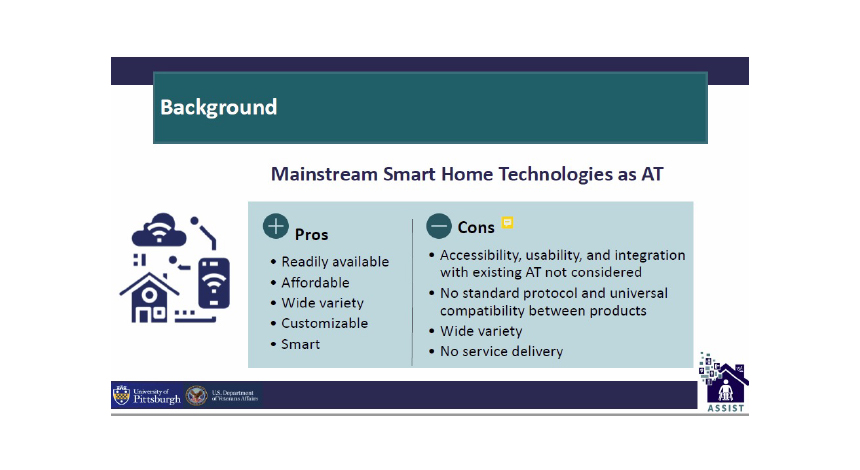
Paul Nisbet
Paul Nisbet is Senior Research Fellow and Director of CALL Scotland, a service, development and research unit within the University of Edinburgh. In 2010 Paul was awarded the University of Edinburgh Principal’s Medal in recognition of his work in the field of assistive technology.
“I’m honoured that you thought of me. Please sign me up for ATIA2021! Congratulations on the British AT Scholar initiative, you’ve still got the vision! I’m really looking forward to being involved.”.
AT Connected
The Assistive Technology Industry Association (ATIA) AT Connected event is one of the largest and most varied conferences focussing on assistive technology and this year it was an online event held from January 25th to February 4th 2021. I was fortunate to be offered one of 24 AT Scholarships to attend the conference and it's been a fascinating, enriching and stimulating experience.
Structure
ATIA 2021 had four strands covering 1) AAC, 2) Vision and Hearing Technologies, 3) Education and Learning and 4) AT for Physical Access & Participation. In addition delegates could visit live and recorded sessions from exhibitors, take part in social chat activities and attend 3 hour virtual seminars.

I deliberately chose to attend sessions across all 4 strands to get a better impression of the breadth of topics and out of interest and general nosiness. The sessions were live and made available as recordings - the latter suited my situation better. Each session lasted an hour and the presenters have wide and varied backgrounds. Each session was well described in terms of learning outcomes, topic/strands and target audience, with speaker biographies, and this was helpful when deciding which sessions to attend. The delivery format utilised a presentation with live presenter, and live captioning. Participants were encouraged to interact and comment using the live chat. Most of the sessions I attended were presented by US-based practitioners.

Evidence-based
Most of the sessions I attended were related to service delivery and I was struck by how well they were rooted in theory, research and evidence. This is what one would expect at an international event showcasing best practice, but it certainly made me reflect on my own practice and how we go about our work in CALL Scotland. Session EDU050201 QIAT Conversations- Practical Quality Resources to Support your AT Services was a particularly good summary of tools and resources from the Quality Indicators for Assistive Technology (QIAT) group.
Covid-19
Several sessions focussed on supporting families during the Covid-19 response (e.g. AAC080203: My child is getting a talker, you want me to do WHAT?; VHT020202: Tales from the field of Visual Disabilities: What I wish I knew before COVID-19; EDU050202: Embrace the Pivot! Implementing an AT Service Delivery COVID Preparedness Plan) and again I found them thought provoking and directly relevant for our own practice here in Scotland.
Smart Home Technology
A few weeks previous an OT had asked me about mainstream Smart Home technology for a learner to use to control his environment, so I took the opportunity to attend a couple sessions on the topic. AAC010303: Smart Home Technology for People Using AAC: Managing Setup and Implementation looked at controlling the Amazon Echo Dot with speech generating devices while I found ATP060303 on Development of ASSIST Checklist for Use of Smart Home Technology as AT particularly helpful for my investigation and the presenter’s summary of the advantages and disadvantages of Smart Home devices definitely correlated with my own findings (i.e. there’s a lot around; it’s a complex picture; you can’t assume the systems are accessible or compatible).

The checklist is still being developed and evaluated (see www.assistdrrp.pitt.edu) but looks to me to be very promising.
Games and recreation
With children at home during the school closures I became interested in the possibilities offered by gaming for developing technical and access skills, for socialisation, and most importantly for fun and recreation. To supplement my research on the brilliant SpecialEffect web site I attended ATP040103: Smells Like Teen Spirit: Using gaming and social media to increase access. The session was based around case stories of young people such as a young man using the excellent built-in switch and head control on a Mac; NFC tags on photos for automatically texting; and another young man playing Track Mania with switches via the Xbox Adaptive Controller.
Multiple means of access
Margaret Moore, who is studying creative writing at Fairfield University presented AAC010104: The Writer’s Web: Completely Digitizing the Writing Process through AAC where she talked through her process of planning, drafting writing and editing using her Accent communication device. Margaret uses two access methods: her wheelchair joystick for actions where she requires high accuracy; and eye gaze for typing. It was a useful reminder that multiple methods of access are often required depending on the task – one of the learners I’ve been working with for many years uses the same combination of joystick and eye gaze. Margaret gave an inspiring and uplifting session demonstrating the freedom, independence and opportunities that assistive technology can provide.
Summary
ATIA was and continues to be (the recorded sessions are available until June) a tremendous professional learning opportunity. The online experience and time difference meant that I didn’t participate in the social opportunities, but it also meant that attendance fitted more easily into a full time working day. I enjoyed the event immensely and am grateful to Martin Littler, Inclusive Technology and the AT Scholar scheme for the chance to attend the event.
